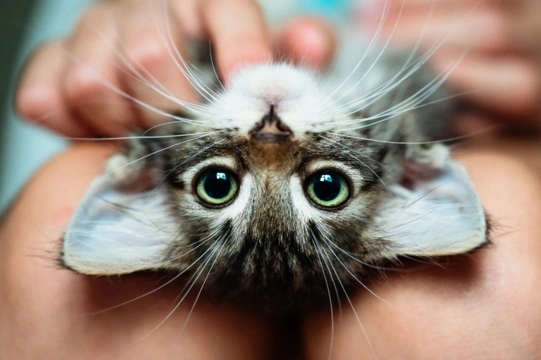
What causes cats to be stressed?
Stress is something that we’ve all experienced at some point in our lives, and some of us feel as if it is almost a constant companion! Being stressed is of course an unpleasant sensation, and one that can have a direct impact on our physical health too, so it is important to recognise the symptoms of stress and take measures to reduce it.
Cats can get stressed too, just like people can; and this is of course a horrible and unpleasant feeling for them too, and one that no cat owner would like to think their cat is facing. Stress in cats can also cause them to suffer from or exacerbate physical health problems too, like cystitis; and if your cat is unhappy at home and feels stressed and unsettled there, they might even move out in search of somewhere they feel more comfortable.
Because cats are very good at masking their emotions, particularly ones that might make them vulnerable to predators, and also as how humans and cats communicate are very different, being able to tell if a cat is stressed isn’t always simple. We’ll look in more detail at the potential signs that your cat is stressed in another article; but in this article, we’ll cover some of the most common and specific scenarios that can cause your cat to be stressed, so that you can do something about them.
Read on to learn more.
Living in close quarters with another cat
First up, cats are actually solitary creatures and whilst many cat owners have two or more cats, domestic cats would not naturally live in social groups in the wild. This means that having more than one cat can cause one or all of them to be stressed, and the more cats you have, the greater the likelihood of this.
Even just having two cats can be stressful for both if they live in very close quarters; to keep more than one cat you need plenty of space for all of the cats to have their own areas of the home, even if they get on very well.
Being bullied by another cat in the neighbourhood
Territory disputes and fighting with or being bullied by another neighbourhood cat can be very stressful, particularly if that cat comes into your cat’s garden or even home.
Take measures to keep other cats out of your garden and particularly, out of the home itself.
Sharing litter trays, beds and resources with another cat
Multi-cat households require individual resources for each cat, which means separate water and food bowls, beds, and even litter trays. Cats really don’t like to share, even with cats they get on with, and shared resources will cause stress.
Having food, water, and litter trays too close together
Cats also like to have a large degree of separation between their litter tray and food and water bowls; and they even prefer their food and water bowls to be at a distance from each other too. This is an evolutionary trait that helps to prevent contamination of food and particularly, water supplies.
Keep your cat’s food and water bowls apart, and their litter tray in a different room entirely to reduce stress.
Dirty litter trays or living situations
Cats are scrupulously clean animals, and they greatly dislike being made to live in a dirty environment. A dirty litter tray is one of the greatest causes of stress in cats, and few cat owners clean their cat’s litter trays as often as they should; which is as soon as there is anything in it to remove.
Clean your cat’s litter tray as often as possible and at least once a day. Disinfect the tray and provide completely fresh litter frequently too.
Also, avoid fragranced litters, as they are not pleasant and may be stressful to your cat!
Other pets
Many cats live happily with other pets like cat-safe dogs, and they may even get on better with another species of animal than with another cat. However, this won’t be the case and will be stressful for your cat if the other animal scares or bullies them, or eats their food and interferes with their resources.
Moving home
Cats are highly territorial, and hate the upheaval of a house move; and few people actually enjoy the moving process either! Moves are of course unavoidable at times, but try to factor in how stressful they can be for your cat and take steps to mitigate their stress and make the move as easy as possible.
Noise and lots of activity
Cats tend to like everything around them to be calm and relaxed, and they will find a lot of activity like a party, rowdy people watching football on your TV, or lots of kids running around stressful. In such situations, make sure that the cat has a safe, quiet room where they won’t be disturbed.
Changes in the makeup of the household
A new addition to the household, like a baby or a new partner, or someone leaving, can all upset and stress you cat out. Take time to ensure the cat and any newcomer get used to each other and get on well, and make sure you give your cat plenty of love and attention if someone they love moves out.
Inappropriate handling or care
Being held and restricted, handled roughly or otherwise inappropriately will be hugely stressful for a cat, make them avoid you, potentially make them aggressive, and may result in them leaving home.
Ensure that you’re handling and interacting with your cat properly; and that if you have children or child visitors, that they do too, or are supervised to ensure they leave the cat well alone.



